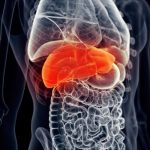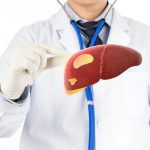Low AST Levels: Should you worry?
Our content is not intended nor recommended as a substitute for medical advice by your doctor. Use for informational purposes only.
Low AST levels are a common accidental finding during routine blood work. However, most of the time, the low AST levels are not a cause of concern and are clinically insignificant.
Only in people with End-stage liver cirrhosis, low AST levels may indicate a depletion in liver function (which is a bad sign).
What is AST? And what are normal and low levels?
Aspartate aminotransferase is an enzyme found inside the liver cells and is used to indicate liver inflammation (when its levels are high).
Also, the Liver is not the only site of AST. So, it is less specific than ALT (alanine aminotransferase) as a marker of liver inflammation.
Common sites of AST:
- The Liver.
- The brain.
- The heart (cardiac muscle).
- Skeletal muscles.
The reference ranges of AST for adults:
- Men: from 10 to 40 U/L
- Women: from 9 to 32 U/L
The reference ranges for AST differ from laboratory to laboratory. Therefore, refer to your lab for the same reference levels.
What is considered a low AST level?
Any AST level below the reference range for your laboratory is considered low AST.
Other experts consider levels below 5 U/L to be low AST levels. Moreover, some laboratories do not have a lower reference range for AST.
What does it mean if your AST level is low?
Low AST levels are generally not a cause of concern. There is no such disease called low AST levels. However, many people accidentally discover that their AST Levels are below the reference range.
And this may be the reason why you are reading this article today. No need to worry or get anxious about such levels of AST.
A low AST level doesn’t necessarily mean you have a health issue. However, it can mean you are not within the 95% percent of people within the reference range.
Low levels of AST can be attributed to the statistical way used to calculate the reference range for AST. The reference ranges often are designed to include the majority (95%) of the people.
The clinical significance of the AST test is when it is high, not low. And bear in mind that some labs don’t even have a lower reference range for AST.
Possible explanations:
- Normal variation.
Some people may typically have low AST levels during routine laboratory investigations. However, there is no need to worry, which may be related to how the reference range is calculated (explained before). - Being older:
AST levels are highest among children and decline with age (reference). AST is released from healthy liver cells in average amounts (within reference ranges). As the liver age, the total number of liver cells may begin to decline, which lead to low AST levels. - A bad sign in people with liver cirrhosis.
For people with end-stage liver cirrhosis, the low AST levels may indicate the depletion of liver cells (and deterioration of their function). NOTE: this doesn’t apply to people without liver cirrhosis, even if they have another disease, fatty Liver, or alcoholic hepatitis. - Other possible explanations (weak evidence): Some studies linked low AST levels to vitamin B6 deficiency, alcohol drinking, or smoking. But the results are inconsistent, and more research is needed.
Is a low level of AST good?
Low AST levels are generally not considered bad (unless you have liver cirrhosis). The good thing about low AST levels is that you don’t have liver inflammation (elevated AST and ALT).
Some linked low AST levels to vitamin B6 deficiency. However, it is infrequent nowadays to have vitamin B12 deficiency unless you have severe organ damage, such as Liver or kidney failure.
Do Low AST levels cause symptoms?
Usually, low AST levels don’t cause symptoms. Most people discover it accidentally during routine blood work. In rare cases, low vitamin B6 deficiency symptoms include skin rashes, cracked lips, sore tongue, and generalized fatigue.
Should you be concerned about an AST level?
Low AST levels are not a cause of concern for most people. There is no need to take action if you don’t have end-stage liver cirrhosis.
Is there a treatment for low AST levels?
No treatment is needed for low AST levels. Only in people with liver cirrhosis do some studies suggest vitamin B6 supplementation (which is needed for AST enzyme activation).
However, the results are controversial, and other researchers found NO benefits from vitamin B6 supplementation for low AST levels (reference).
- Evidence-based
- Written by a doctor.

Related Posts:
- When to worry about ALT levels? Gastroenterologist Explains.
- Lipase levels 101: Normal Range, Elevated, Low Levels & More
- What levels of AST & ALT Indicate Dangerous Liver Damage?
- Typical & Atypical Bilirubin levels in cirrhosis…
- Fluffy Poop: 7 Causes & When to Worry (Doctor Explains).
- Norovirus Poop Color Changes & When To Worry (GI…






